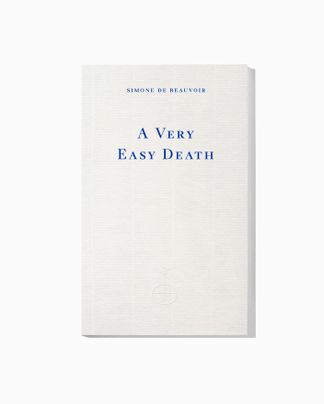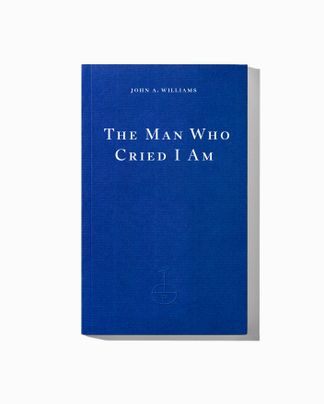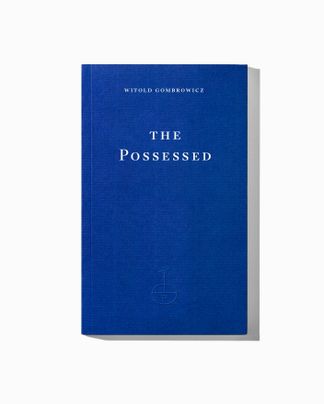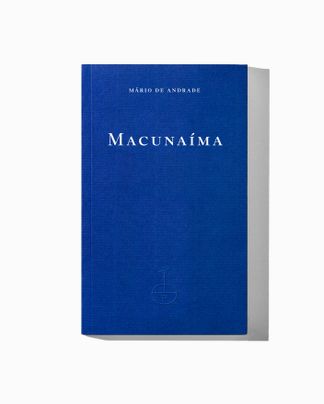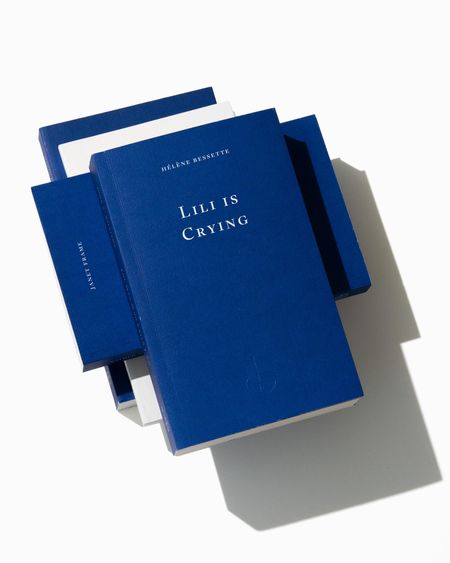In 1937, Elias Canetti began collecting notes for the project that ‘by definition, he could never live to complete’, as translator Peter Filkins writes in his afterword. The Book Against Death is the work of a lifetime: a collection of Canetti’s aphorisms, diatribes, musings and commentaries on and against death – published in English for the first time since his death in 1994 – interspersed with material from philosophers and writers including Goethe, Walter Benjamin and Robert Walser. This major work by the 1981 Nobel Prize in Literature laureate is a disarming and often darkly comic reckoning with the inevitability of death and with its politicization, evoking despair at the loss of loved ones and the impossibility of facing one’s own death, while fiercely protesting the mass deaths incurred during war and the willingness of the despot to wield death as power. Infused with fervour and vitality, The Book Against Death ultimately forms a moving affirmation of the value of life itself.
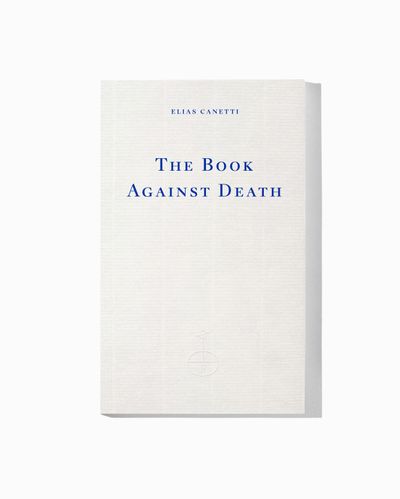
The Book Against Death
Translated by Peter Filkins, with a preface by Joshua Cohen
Fitzcarraldo Classic No. 5 | French paperback with flaps, 352 pages
Published 6 June 2024
The Book Against Death
Translated by Peter Filkins, with a preface by Joshua Cohen
Cemeteries for the Stillborn
It begins with the fact that we count the dead. Through death each should become a single entity, like God. One dead person plus another do not make two. It would be better to count the living, given how perishable that number already is.
Entire cities and districts can mourn as if all their men had fallen, all their sons and fathers. But so long as 11,370 have fallen, they will forever seek to have it add up to a million.
Ants and Death
The ant knows nothing of our illnesses and epidemics. You don’t even notice when an ant dies, for it so easily lives again. In regard to this, Miss Feld performed some rather cruel, but convincing, experiments. Of seven ants that she kept underwater for eight days, four came alive again. Others she starved, giving them nothing but a little water on a sterilized sponge. Nine Formica subsericea lasted between 70 and 106 days. Among the many creatures in the experiment there were indeed only three instances of cannibalism. And on days twenty, thirty-five, sixty-two and seventy of their imposed fast, several half-starved ants managed to share a drop of honey with those whose condition was clearly hopeless. The ants were only sensitive to cold. But even then, they did not die, but rather fell asleep, opting for an economical and practical state of torpor to quietly await the return of the sun.
The knowledge of death appears to be the most consequential experience of human history. It turned into the acceptance of death. Deliberate killing among us is only possible once we know that the deceased is to a certain degree dead.
The vanishing, the sudden and secret rapture of the great and the holy, because they are not allowed to die.
The Grantor of Years – A Benefactor
Imagine granting your own years to others. Someone gives to others, whose worth he values, a number of his own years in order to prolong theirs. Say that it has been prophesied that he will live a long time, that he knows he will reach his hundredth birthday. Therefore, after making thorough inquiries while travelling around, he decides who needs his years. He parses them out quite thoughtfully, not too many, not too few – a strenuous occupation. In the time that he has left to him, he considers what the best use of what he is sacrificing could be. The news about his extraordinary undertaking spreads fast. He falls prey to speculators who want to make money from his years. They try to convince him of the value of their clients, their general importance and usefulness, even though in truth they are ancient, ridiculous little old ladies who have a lot of money and even more hunger for a couple more ridiculous little years. So, the speculators manufacture important people, because for the benefactor, an incorruptible figure, it’s just a matter of paying out the money. The reduced number of his years makes them ever more valuable; the fewer of them that remain, the more people desire to savour some for themselves. What develops is a kind of system of stocks that are traded and which reach incredibly high prices. Those who earlier, before speculation began, were granted years are rooted out and pressured to forsake their rights in any way possible. The years are then split into months and weeks. An organisation forms among those who acquired their claims by paying for them, complete with an executive committee and elections. They most of all have to keep an eye out for the moment when the benefactor will reach the long-ago fixed limit of his life. Up until that moment what remains belongs to them.
On the night following the fourteenth Sha’bán (the eighth month of the Muslim year) special services are held in all the mosques. The traditional reason is that ‘on this night the lote tree of Paradise, on the leaves of which are inscribed the names of all living persons, is shaken, and the leaf of any mortal who is predestined to die during the ensuing year falls withering to the ground.’
His knack for doing everything at the worst of all times. The depressing messiness of time, which causes him to feel as if he cannot tolerate its irreversibility. If he were able to execute matters in the correct sequence, he fears that he would accept death, towards which any series of events leads.
Chinese Seamen ‘Reincarnated’
‘Fifty-four Chinese seamen, threatened with deportation from Canada for refusing to go to sea again after they had been torpedoed, claimed they were Canadian by reincarnation. They said that they died in the Atlantic, after their ship was torpedoed, and were reincarnated in a Canadian vessel that picked them up. The Canadian authorities disputed this claim and the Chinese must go to sea again.’
‘Certainly, animals are conscious of a very real uneasiness in the presence of the death of one of their own kind. None of them, however, make any pretence of burying their dead ceremonially. The first recorded examples of the latter come from the age of the so-called Neanderthal men, some 50 to 100,000 years, BCE.’
The Last Words of Bourignon (1680)
‘If I die, I die against the will of God…’
‘The sun and death are two things we cannot stare into the eye of.’
— La Rochefoucauld
(…)
‘Bereavements provide the personal background to Canetti’s preoccupation with death, but there was also a political dimension. Though he spent the First World War in neutral Switzerland, the carnage and its aftermath darkened the horizon for his generation…. This book is therefore, among other things, a threnody for a generation of European Jews, the last for whom German was the natural language of literature…. [Canetti’s] conflicted relationship with Germany forms a fascinating subplot to the book.’
— Daniel Johnson, Times Literary Supplement
‘Canetti would not shrug-off or laugh death out of his mind: he is sincere, clamorous, indignant and endlessly aggrieved. His disdain is boundless and therefore so is his book, for which no material is beyond incorporation. As with all acquisitive projects, it is never satiated – it acknowledges no terminus. It finished only when Canetti himself was finished by death…. He is always in defiance against seemingly eternal forces: power, society, religion, God, death. And it is not enough simply to think about something all thoughts are enlisted in the conquest of their subject. Canetti’s pensée amounts to an act of protest, a great refutation, culminating in the ultimate refutation of death.’
— Jared Marcel Pollen, New Statesman
‘[A] captivating collection of Canetti’s notes…. If death involves fixity, then life demands movement. The Book Against Death refuses finality by remaining forever on the cusp of transformation. It will await its final revision until the end of time. It can’t save all of us, as Canetti longed to, but there is a small portion of immortality to be found in it nonetheless.’
— Becca Rothfeld, Washington Post
‘Rarely has anyone been so at home in the mind, with so little ambivalence. Far from being a source of complacency, this attitude is Canetti’s great strength…. [He] is someone who has felt in a profound way the responsibility of words…. His work eloquently and nobly defends tension, exertion, moral and amoral seriousness.’
— Susan Sontag, New York Review of Books
‘One of our great imaginers and solitary men of genius.’
— Iris Murdoch
‘Canetti led his life without compromise, fear, or guilt, and [reading him is] like discovering, without warning, a complex and satisfying work of art.’
— David Denby, New Yorker
‘Canetti invites – indeed, compels – judgement. His exacting presence honours literature.’
— George Steiner, New Yorker
‘The erudition is genuinely awe-inspiring.’
— Salman Rushdie
‘Before there was the mysterious W. G. Sebald, there was the even more mysterious Elias Canetti’
— Clive James, New York Times
‘By virtue of his abundant wit and stylistic pithiness, Canetti stands out as one of the foremost aphorists of our time, a man who, in his phrasing of life’s ironies, is sometimes reminiscent of great predecessors like La Bruyère and Lichtenberg.’
— Swedish Academy, Nobel Prize in Literature 1981
‘This heterogeneous collage of vignettes, literary theory and personal musings against the notion of dying, from the Nobel Prize-winning author of Auto-da-Fé (1947), is stitched together by a humorous, analytically sharp tone, with a healthy dose of anger and despair.’
— Ivana Cholakova, Frieze
‘It displays all of Canetti’s erudition – observations about animal life intermingle with tales from classical China, philosophers and writers are put under the knife, and every religion will be cited and lambasted in equal measure – as well as his bleak wit. It also displays, par excellence, his contrarian nature…. He juxtaposes writing and death; the marks on the page are the opposite of the marks on the tombstone.’
— Duncan Stuart, The Millions
‘The Book Against Death represents something of a guerilla campaign: the death of death via a thousand cuts, with the weapon of a thousand aphorisms and ephemera. To read it is to experience a sustained, gradual expansion of one’s conception of what death is, and the role it plays in human life…. With this most recent translation by Peter Falkins, Canetti secures how he will be remembered – indeed, how he will manage to defy death: contorted with pain but not corrupted, single-minded and immortal in his defiance.’
— Sebastián Sánchez, Asymptote
‘The Book Against Death is a bracing text. I find it impossible to read these aphorisms and not think of the fragments of lives circulating on the internet…. These fragments, too, indict a system of world politics in crisis, sick with death. And these missives reinscribe a humanity into the abstraction of the system, not allowing us to blithely accept the ongoing mass delivery of destruction. Scholars can argue that Canetti, the heir of Stendhal and Lichtenberg, lives on through the great influence that Bernhard has had on contemporary literature. But the true spirit of The Book Against Death, at least, is most alive in these posts, which compose a collective Book Against Death – written against the obliteration of mass death, affirming the specificity and texture of life.’
— Sanders Isaac Bernstein, The Baffler
Praise for Auto da Fé
‘The power of Canetti’s method, in its flexibility and its range, achieves that rarest of contemporary feelings: a clear and terrible vision of human inadequacy which itself does not harden into contempt and spite…. the most important literary expression, in the last forty years, of the processes of delusion.’
— Raymond Williams
‘One of the few undoubted masterpieces of our time.’
— John Davenport
Elias Canetti was born in 1905 into a Sephardi Jewish family in Ruse, Bulgaria. He moved to Vienna in 1924, where he became involved in literary circles while studying for a degree in chemistry. He remained in Vienna until the Anschluss, when he emigrated to England and later to Switzerland, where he died in 1994. In 1981, Canetti was awarded the Nobel Prize in Literature for ‘writings marked by a broad outlook, a wealth of ideas, and artistic power’. His best-known works include his trilogy of memoirs The Tongue Set Free, The Torch in My Ear, and The Play of the Eyes; the novel Auto-da-Fé; and the non-fiction book Crowds and Power.
Peter Filkins is the translator of Ingeborg Bachmann’s collected poems, Darkness Spoken, as well as three novels by H. G. Adler, The Journey, Panorama and The Wall. He published a biography, H. G. Adler: A Life in Many Worlds, in 2019. Filkins’s fifth collection of poems, Water / Music, appeared in 2021. He teaches at Bard College.
Joshua Cohen was born in 1980 in Atlantic City. His books include the novels Moving Kings, Book of Numbers, Witz, A Heaven of Others, and Cadenza for the Schneidermann Violin Concerto; the short fiction collection Four New Messages, and the non-fiction collection Attention: Dispatches from a Land of Distraction. Called ‘a major American writer’ by the New York Times, ‘maybe America’s greatest living writer’ by the Washington Post, and ‘an extraordinary prose stylist, surely one of the most prodigious at work in American fiction today’ by the New Yorker, Cohen was awarded Israel’s 2013 Matanel Prize for Jewish Writers, and in 2017 was named one of Granta’s Best Young American Novelists. In 2022, he was awarded the Pulitzer Prize for Fiction for The Netanyahus. He lives in New York City.

